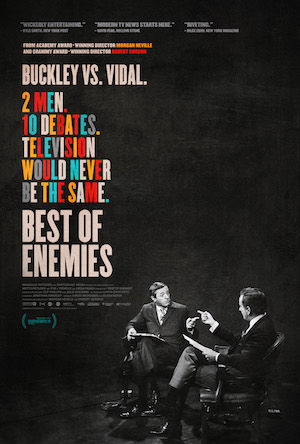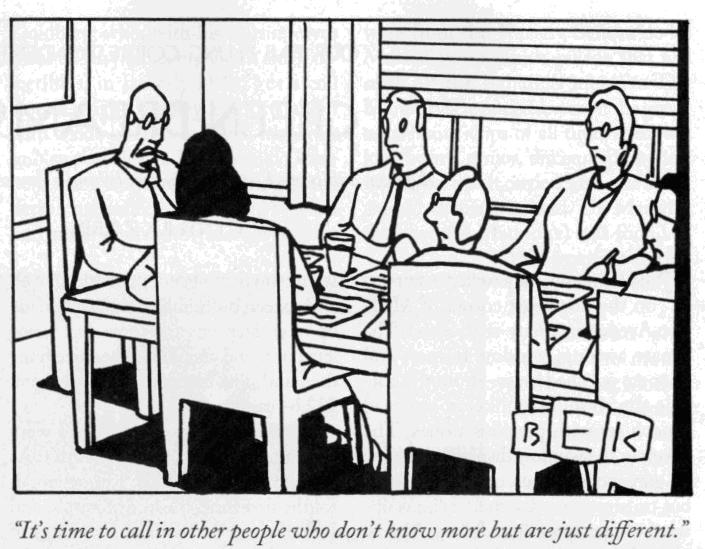
Cogs in the media machine constantly bombard us with differing perspectives on all matters of public debate. Blogs, newspapers, television, social media sites – thousands of responses and re-responses in discussions about everything.
The situation rightly causes us to ask the question: who should we believe?
It’s a constant dilemma in the Christian life. Who are you listening to? Pharaoh or Moses? Yahweh or the prophets of Baal? The old person or the new? Temptation or the word? The forgiveness spoken by God in Christ, or the word of condemnation spoken by the Accuser? Paul or Apollos or Cephas or Christ? Who are you going to believe?
Generally, it helps to examine credentials. Where one contributor has a PhD in, say, New Testament and the detractors aren’t nearly as qualified, then it goes without saying that the good doctor has more exegetical credibility. That’s certainly not enough for the professionals to win the day, but it is enough to give them the upper hand. Put simply: trained bible scholars are experts on the text, and untrained “scholars” are not.
Of course, we have to examine arguments – not merely pedigrees – to judge whether something is true. It’s good, though, to prefer strong sources. Chances are, they’re going to have something better to say. But when there really isn’t an academic disparity between interlocutors, the waters get rougher.
The marketplace of ideas is oversaturated with theological degrees. What are Christians to do when pulled in every direction by vocational thinkers of every sort? Two theologians with degrees from similar institutions take opposite views on an issue, and both give convincing arguments (or, at least, both arguments are slightly too complicated for a layperson to fully comprehend, which makes them sound convincing).
One practical way to get at the “preferred source” is to examine the area of expertise. Thomas Sowell helpfully observed the hubris of academic culture: intellectuals assume that they are qualified to speak authoritatively on all matters of public debate simply because they’re an expert in one.
In reality, though, on questions concerning the beliefs of the early church, the church historian probably has a better claim than the systematic theologian. Again, this grid isn’t absolutely decisive, but it holds some considerable weight. It’s at least enough for us to straighten up in our seats and lean in.
However, the heart of the problem remains. Who do you listen to when you’re faced with equally credentialed academics who disagree about a subject in their field? Yes, you can ask other questions: does one have more experience? Are you inclined one way or the other just because one belongs to your “tribe”? Is the position that one is taking part of a specific theological system, and if so, how tenable is that system?
The questions are almost endless, but at every turn, you could answer each in a way that still leaves you with equally qualified people giving reasonable, orthodox, opposing arguments.
It’s enough to make us all a bit anxious. The question seems to morph before our eyes from, “Who should we listen to,” into, “Can we really know anything?”

In response to this epistemic predicament, it obviously wouldn’t be right to call for a moratorium on academic theology. The church needs faithful theologians who mine out the doctrines that compose Christian belief.
But our churches need a reminder: God is for us, and the Scriptures are ours. The Scriptures are not principally a textbook of doctrinal facts. They are the story of God’s redemptive purpose; the record of his election of Israel and, through Israel, his election of the whole world; the testament to his love for sinners. They contain a Law we cannot keep and a glorious, gracious gospel announcing to us that the Law has been kept on our behalf.
The Scriptures are a balm, and they announce the peace we have in Christ. Their message to us is simple: it is finished. God has done for us what we could never hope to do for ourselves. We’re worse than we think but more loved than we know.
It’s not complicated. Yes, the Scriptures are deep and wide, but the text should be a place of blessed assurance; a well of living water for thirsty sinners.
With that in mind, we ask again, “Can we really know anything?” Yes, but it’s a different kind of knowing, born from reading and meditating on the gospel of grace, a rediscovery of the Bible as a precious witness of God’s love.
Though the Scriptures do help us settle theological debates, Christians should read the Bible to hear the word of the Lord to all who truly turn unto him: Come unto me, all ye that travail and are heavy laden, and I will refresh you.
Study and argue and contend and study some more. Write confessions and statements of faith that are saturated with serious academic, theological reflection. Take sides and speak with conviction.
Just remember: when uncertainty comes – and it will – and we’re blown about by theological winds, something sure remains: Christ Jesus came into the world to save sinners.
Refreshing, isn’t it?
https://www.youtube.com/watch?v=TsglJBRFq5k
Eric Dorman lives in Nashville with his wife, Alexandra Sciaretta Dorman, and is a member of St. Joseph of Arimathea Episcopal Church in the Diocese of Tennessee. Find him on Twitter at @ericdsdorman.

COMMENTS
3 responses to “When Everyone’s an Expert: Listening to Scripture in the Midst of Uncertainty”
Leave a Reply













Yes it is refreshing!
I love this….. Enlightening and spoken with Christian love!